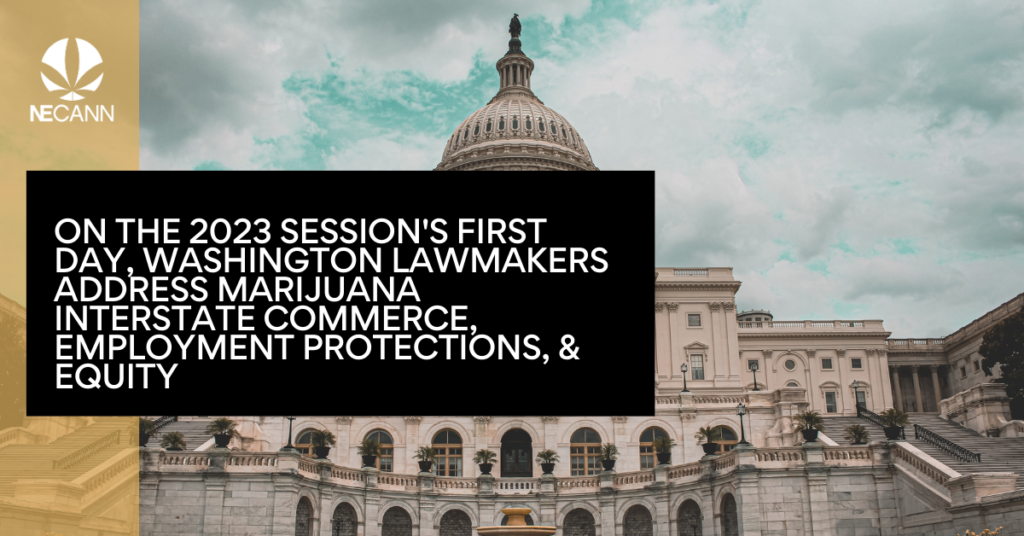According to a report by Marijuana Moment, lawmakers in Washington State held committee hearings in the House and Senate to consider a package of marijuana reform proposals addressing issues of employment rights, interstate trade, and social equality.
The three marijuana ideas were reviewed by the Senate Labor & Commerce Committee as the state attempted to strengthen its adult-use market. The bill’s sponsor is the panel’s chair, Democratic Senator Karen Keiser. Separately, the House Regulated Substances & Gaming Committee heard bills on the interstate trade of marijuana and on the transfer of funds for cannabis products from processors to retailers.
Although there was no vote on the bills, their advancement in the 2023 session was advanced by hearings in both chambers on Tuesday.
Social Equity
Washington state senator and vice head of the majority caucus Rebecca Saldaa (D) introduced legislation to improve the state’s social equity program for the marijuana sector.
Among the many proposed measures to achieve this goal is a shift in how equity licensees are approved by regulators. Equity retailers might be added to the program at the discretion of the Liquor and Cannabis Board (LCB) based on population trends, and they could set up shop in any municipality that permits marijuana businesses to operate.
The committee also addressed a bipartisan bill from Sen. Ann Rivers (R) and Keiser to establish a framework for cannabis interstate commerce pending federal regulatory change.
Interstate Commerce
The governor of Washington could make deals with other legal states for state-licensed cannabis businesses to import and export. Washington’s packaging and labeling laws apply to out-of-state products.
It would only take effect if 1) a federal law change “allows for the interstate transfer of cannabis” between licensed enterprises, or 2) the U.S. Department of Justice releases an opinion “allowing or tolerating” marijuana commerce across state lines.
If either of these conditions is met, state regulators must send out a written notice about the change in federal policy and any “statutory adjustments” needed at the state level to allow out-of-state businesses to sell, distribute, and accept cannabis. Cross-border trade regulations would also be needed.
Employment Protections
Keiser filed a bill that would make it illegal for state employers to discriminate against most job applicants because they used marijuana off-duty or tested positive for THC metabolites that don’t make you high.
The proposal says that when the state legalized marijuana for adults in 2012, it “created a gap between prospective employees’ legal actions and businesses’ hiring practices” because most drug tests can only find inactive THC metabolites, which can stay in a person’s system for weeks.
The two-page bill would add a new section to state code, making it “unlawful for an employer to discriminate against a person in hiring if the discrimination” is based on whether they used cannabis “off the job and away from the workplace” or tested positive for THC metabolites in employer-mandated drug screening.
The proposal has restrictions. An employer could use drug tests to detect active marijuana impairment.
The change would not alter “the rights or obligations of an employer to maintain a drug and alcohol-free workplace, or any other rights or obligations mandated by federal law or regulation.”
The law would not include building and construction workers or those who need federal background checks or security clearance.




